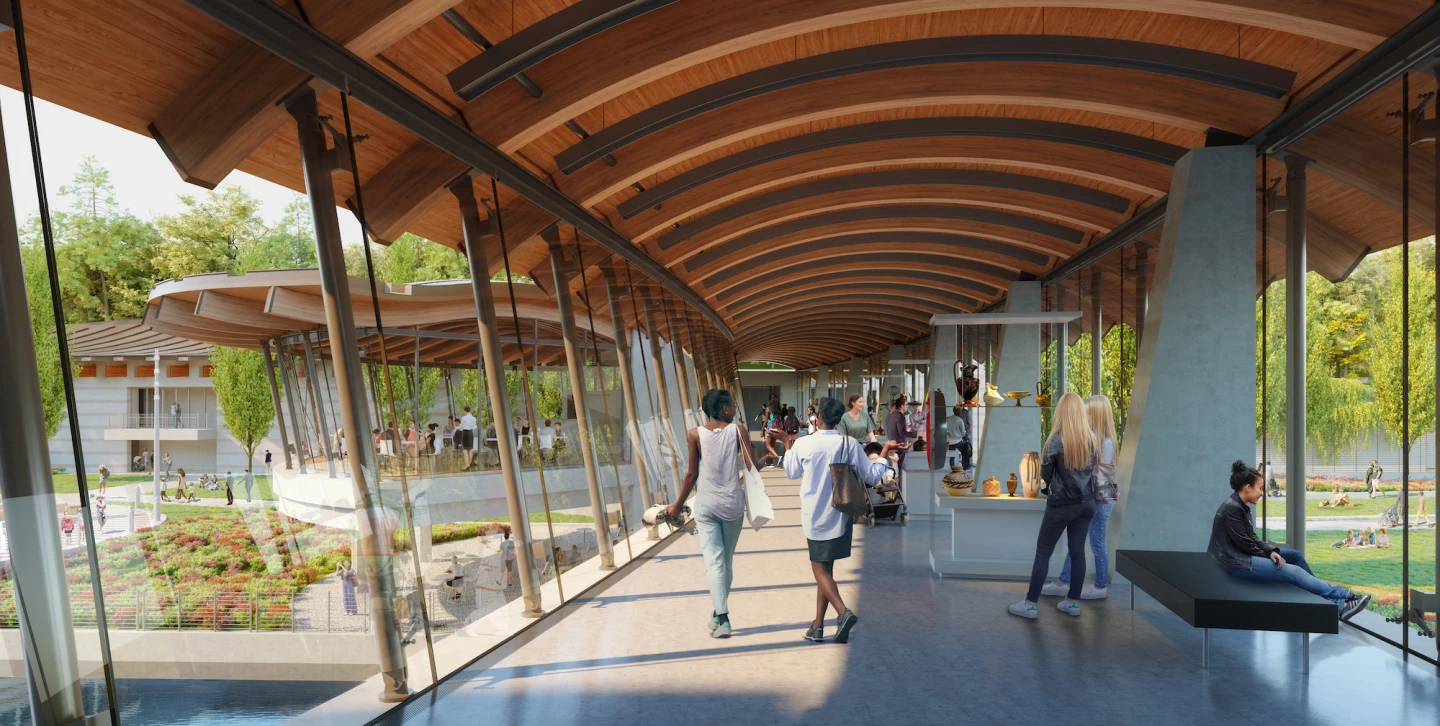Moshe Safdie's latest project sees the designer of the world's largest indoor waterfall and world's first horizontal skyscraper return to a museum his firm first completed a decade ago. The Crystal Bridges Museum of American Art expansion will involve increasing available floorspace by adding new buildings, including one that bridges a body of water.
The Crystal Bridges Museum of American Art is nestled within 120 acres (48.5 hectares) of rolling landscape in Arkansas and includes works from the colonial era to modern day. It also contains a Frank-Lloyd-Wright-designed house that was painstakingly relocated to the museum's grounds in 2015.
The museum's overall design is interesting and consists of a series of pavilions and bridges that create ponds by damming a natural spring.
"The museum is designed as a series of interconnected, pavilion-like structures, two of which bridge the spring and act as dams to create ponds," explains Safdie Architects. "The ponds are fed by the spring, but they are designed to accommodate the 100-year flood, which, as it swells through the valleys, will flow under the buildings without disturbing them. Every measure has been taken to allow the patrons to enjoy art in unison with nature. Open inter-passages provide dramatic views of the surrounding parks and reconnect with nature as one moves from one gallery to the other, or one pavilion to the next. The balance of the undisturbed site, filled with trails and mature woods, is planned as a public park."

The expansion, which will also see Buro Happold handling engineering duties, will increase floorspace of the 200,000-sq-ft (roughly 18,500-sq-m) museum up to 300,000 sq ft (28,000 sq m). Much of the notable work will be centered around two new buildings that will take their place well with the original museum and will be connected by a bridge over a pond that will contain a gallery, as well as a cafe and other amenities.
A new plaza will also be added, as will more paths, and a tent designed to host events. Additionally, separate to this project, work is also nearing completion by Safdie Architects on a redesign of the main lobby and courtyard.
There is some thought paid to sustainability too. Parts of the project will have their exterior buried into the cliffside to reduce heating and cooling needs, while a rainwater collection system will also be installed. Additionally, the museum will make use of locally sourced timber, stone, and concrete, and the use of natural light is also a major focus, with skylight placement carefully calculated. A daylight monitor and diffusing panels will be used to ensure natural light is maximized without damaging the art.
The project is expected to begin construction in early 2022, with the aim to finish it in 2024.
Source: Safdie Architects








